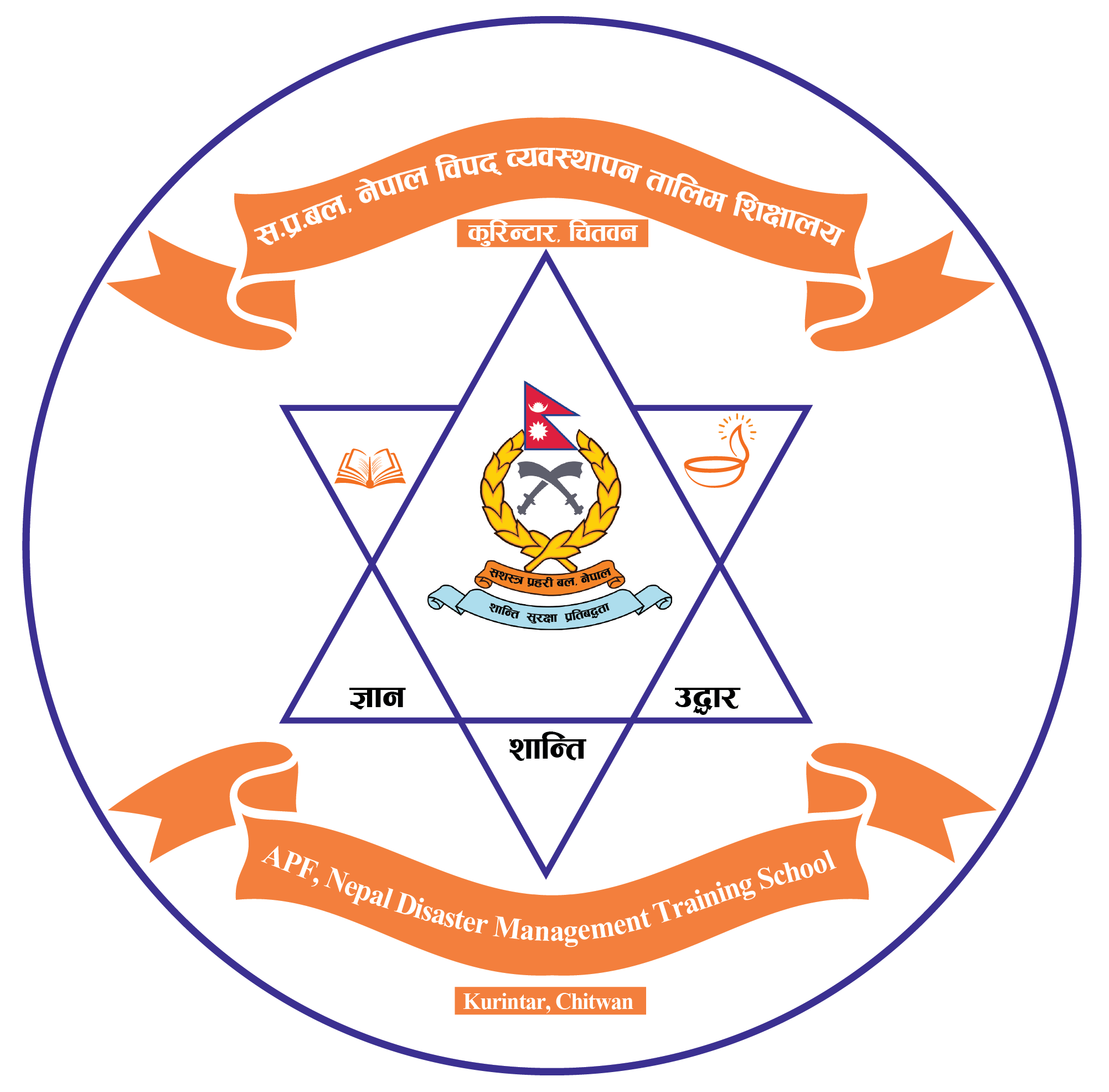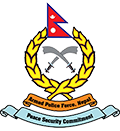About Us
Armed Police Force, Nepal Disastr Management Training School,Kurintar
was established on December 8, 2011. Since its establishment DMTS has
been played vital role to enhance the capability of APF personnel to
manage and response disasters occurred in the various part of country.
APF DMTS conducts various disaster related basic and advance courses and other professional courses as well. In the basic disaster management course for constable to senior officers includes:
• Disaster Management Introduction
• Medical First Responder ( MFR)
• Collapsed Structure Search and Rescue(CSSR)
• Dead Body Management(DBM)
• Water induced disaster rescue including OBM
• Rappelling and Climbing
• Fire Fighting Techniques
• Practical Emergency Logistic Training (PELT)
All courses are purely practically orientated - all teaching is done in the field with real life scenarios so as to learn and acquire a real need based experience and to be familiar with the techniques when they come to a real disaster scene.
MFR and First aid gives the rescuer skills to assess and give
primary care to victim in a situation where all the ideal equipment and
supplies may not be immediately available. CSSR teaches how to respond
to collapse structure and initiate rescue operation to save maximum
lives by identifying entrapped victims. Dead Body Management teaches
handling identified unidentifi ed dead body and initiate proper legal
documentation. Water Induced Disaster Rescue teaches the techniques of
shallow and deep water rescue process and skills to safely recover
victims who may have been caught or stranded by moving water. Th e low
to steep angle rescue course focuses on recovering victims from sloping
land, created by a landslide, by approaching the victim safely and
raising or lowering them from the slope, as appropriate to the
situation. PELT is specially designed by World Food Programme to enhance the skill to provide logistic support for displaced people.
The objective of the DM training is to develop competent, confident and committed APF officers who can present themselves as professional and trained disaster personnel when they are deployed in rescue operations. It is also aimed at to sensitize the participating officers regarding the nature of disaster and to make them understand beforehand as how rescue equipment are used and functions and what are the Do's and Don'ts in the rescue areas that have to be observed without fail. The Course also aims to provide the professional foundation for success stressing on the contemporary system of disaster management. The Course limits its domain to stand on three pillars. The first pillar is the theoretical training and education program; the second pillar is to develop a level of confidence to accept and deliver the given disaster related responsibilities; and the third pillar is the encouragement of continuing self-development through self-study via explorations. The essence of the experience gained upon the course is speculated to be the product of the right blend of disaster training and education based on empirical knowledge for those selected to attend the Course. Those attending the course will sharpen their skills in the sphere of professional, developmental and disaster related studies, thus enabling them to perform well as how to handle, lead and operate disaster rescue in future years. But the experience must be more than the acquisition of knowledge. It must be the application of the acquired knowledge that the student officers must fully grasp. Only then will they succeed as better and trusted APF officers in their area of responsibility.
Operationally, the APF DMTS is also actively involved in rescue tasks in the local vicinity. Ironically, Prithivi Highway, the only lifeline that connects Kathmandu Valley with rest of Nepal, adjacent to which APF DMTS is located has a dubious record of Road Traffic Accidents (RTA) where many passengers succumb to death, many because of delay in response or unavailability of required life saving tools and equipment.Therefore, the surge in the operational capabilities of APF DMTS is deemed an area of immediate intervention. In order to strengthen the academic capability of this training centre to elevate the quality of operational capacity of APF, DMTS is leaving no stone upturned in maximizing its available resources to maintain optimum utilization in order to achieve the expected results. Apart from imparting the training, APF DMTS also heavily involved in the rescue operations in these years. The result reflects our committed effort in saving lives.

